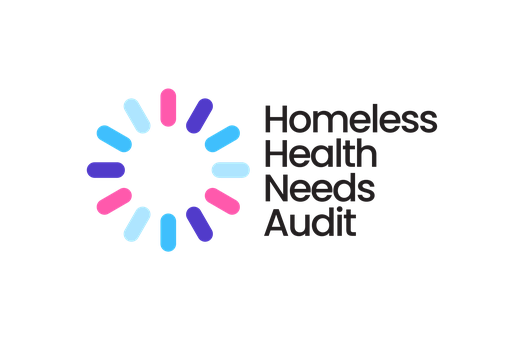Last updated: 11 December 2024
It is well known that people experiencing homelessness face significant health inequalities, and poorer health outcomes than the rest of the population. Diagnoses of physical and mental health conditions are much higher than the general population and many of those experiencing homelessness face early onset frailty.
The Unhealthy State of Homelessness 2022 presents findings from 31 Homeless Health Needs Audits (HHNAs), representing 2,776 individuals. It builds on the learning from our 2014 report, presenting up to date information on the health of people experiencing homelessness, and exploring what we know about whether the right services are available to adequately meet people’s needs. This report presents data in three waves, exploring how health inequalities have changed in the decade between 2012 and 2021.
The HHNA still provides the only national dataset of its kind on this topic. The HHNA is a survey and methodology used to assess the health needs of people experiencing homelessness.
Key findings
- People experiencing homelessness suffer from worse physical and mental health than the general population
- Between 2018 – 2021 63% of respondents reported they had a long term illness, disability or infirmity
- The number of people with a mental health diagnosis has increased substantially from 45% in 2014 to 82% in the 2018 – 2021 cohort
- 45% of respondents reported they are self-medicating with drugs or alcohol to help them cope with their mental health
- Barriers in accessing needed support for physical and mental health means people experiencing homelessness are overreliant on emergency health care services, with 48% of respondents having used A&E services in the last year: three times more than the general population.
- Between 2018 - 2021 a total of 38% of respondents had been admitted to hospital in the 12 months before participating in a Homeless Health Needs Audit. The most common reason for hospital admission related to a physical health condition (37%), and 28% related to either a mental health condition. or self-harm or attempted suicide
- For those who had been admitted to hospital nearly a quarter (24%) had been discharged to the streets
- Nutrition presents as a big challenge with a third of respondents reporting that on average they eat only one more meal a day.
Homelessness has a devastating impact on people’s health and wellbeing. Across all forms of health care needs, both physical and mental, as well as access to necessary support, people experiencing homelessness report poorer diagnoses and greater barriers to the healthcare needed than the general population. We must understand why this is and address the systemic change needed. Experiencing homelessness should not mean that someone is unable to access the healthcare they need. Nor should it mean we accept poorer health outcomes and growing health inequalities. Homelessness is a health issue and we must respond accordingly.

